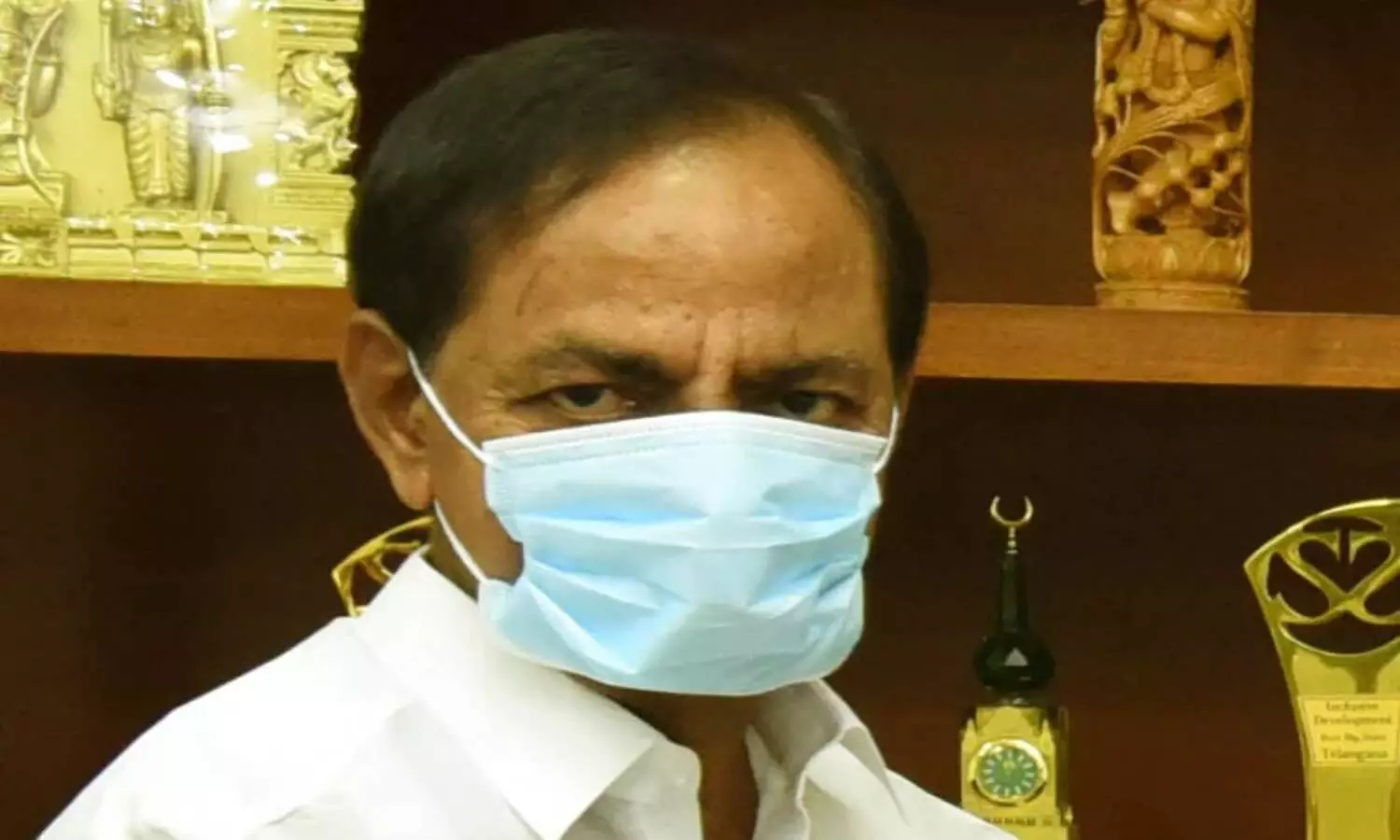KCR launches 19 free diagnostic centres in districts
Telangana Chief Minister K. Chandrashekhar Rao on Saturday announced that 19 diagnostic centres will be launched in district headquarters and major government hospitals from Monday.
By Newsmeter Network
Hyderabad: Telangana Chief Minister K. Chandrashekhar Rao on Saturday announced that 19 diagnostic centres will be launched in district headquarters and major government hospitals from Monday.
The diagnostic centres will open in 19 districts, including Mahbubnagar, Nizamabad, Sangareddy, Medak, Jangaon, Mulugu, Mehboobabad, Bhadradri Kothagudem, Jagtial, Siddipet, Nalgonda, Khammam, Sircilla, Vikarabad, Nirmal, Karimnagar, Adilabad, Gadwal and Asifabad.
KCR said 57 tests will be conducted at these centres, which include tests for COVID-19. Besides general tests, certain special tests, which are expensive, will also be done at the centres for free. He said the government has made arrangements to send the test reports to the patients' mobile phones. Expensive equipment with state-of-the-art technology available in corporate hospitals and major hospitals like Gandhi, Osmania, and NIMs are installed at the centres, KCR said.
Stating that the state government has restored the health sector that had been destroyed during the united AP rule, KCR said the move to set up 19 diagnostic centres at the district headquarters is a landmark decision in the history of medical and health sector in the state.
Pointing out the financial burden on the poor due to diagnostic tests, KCR said, "The poor are forced to sell their properties to avail treatment. These days every other person is suffering from hypertension and diabetes. They have to get examined for these ailments. Tests for heart, liver, kidney, and lungs, cancer, thyroid have become necessary. Now, coronavirus has joined the list. The government doctor will write a prescription but they have to go to private clinics for tests and spend thousands of rupees. This has put a heavy financial burden on the poor."
Against this backdrop, the government has decided to set up diagnostic centres in 19 district headquarters, KCR said, adding that diagnostic centres will also be set up in other places in a phased manner. He reiterated that such a decision was revolutionary and it showed the commitment of the government on public health.
KCR spoke to medical and health department officials on Saturday and discussed medical services and other related issues. He instructed ministers, MLAs, and local body representatives to coordinate with the medical and health department officials and ensure better medical care to people in their respective constituencies.
Equipment and tests
The CM said the diagnostic centres have modern technology-supported testing equipment like fully automatic immunoassay analyzer, five part cell counter, and fully-automatic urine analyzer. Along with these, ECG, 2D Echo, ultra sound, digital X-ray, and other such imaging testing units were also available. These equipment can produce 400 to 800 reports per hour, he added.
The CM also said that the government will ensure that adequate number of pathologists, microbiologists, radiologists, and other staff needed to conduct the tests are posted at these centres.
Elaborating further, KCR said, "There are four types of expenses incurred during medical treatment. The transport expenditure to reach the hospital; doctor's fee, medicines, diagnostic tests, expenses for the inpatient; if discharged, transport charges to come back home; and in case of death, funeral expenses." He said the government is bearing all these expenses and offering free services to people in the government hospitals.
For emergency services, the government is running 428 ambulances under 108 services. Three hundred vehicles are already in operation for pregnant women under Amma Vadi Scheme, where the pregnant mothers are transported free to the hospitals and back home after the delivery. He said diagnostic centres have made arrangements for poor patients undergoing treatment at PHCs to get their samples sent to the nearest centre for quick testing and reports.